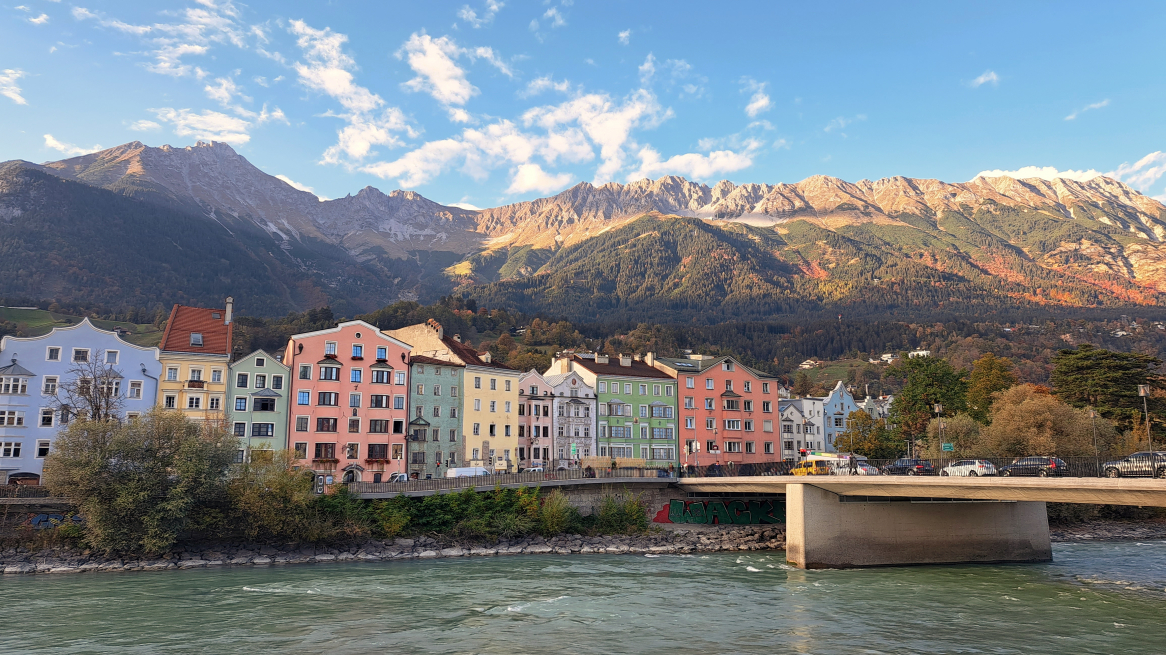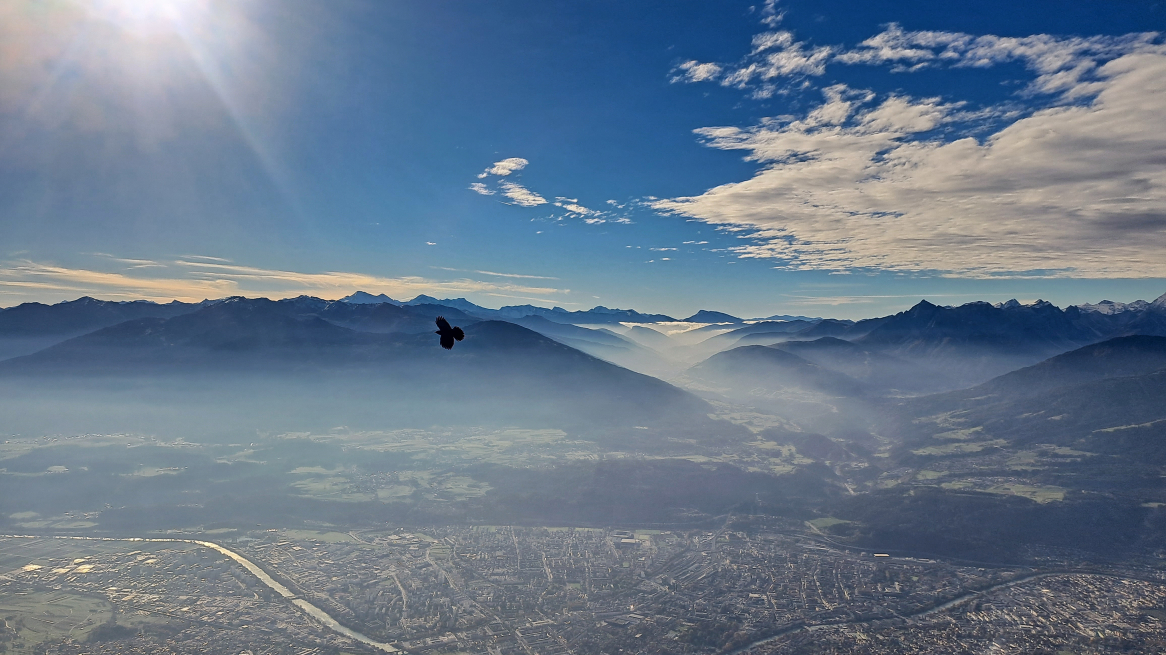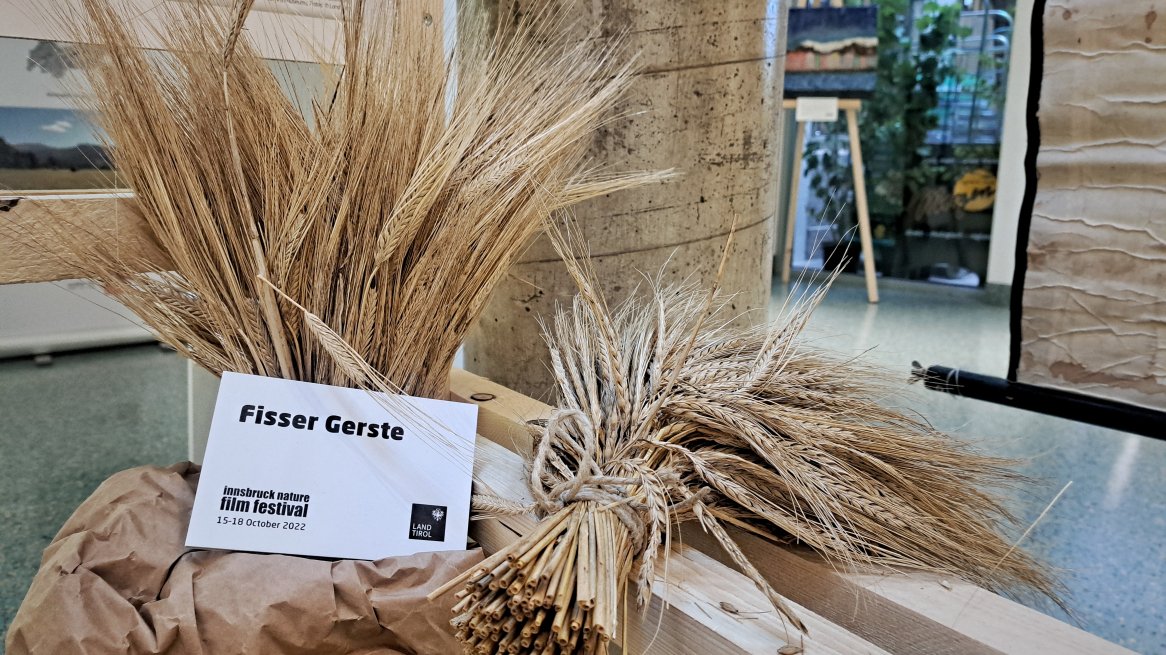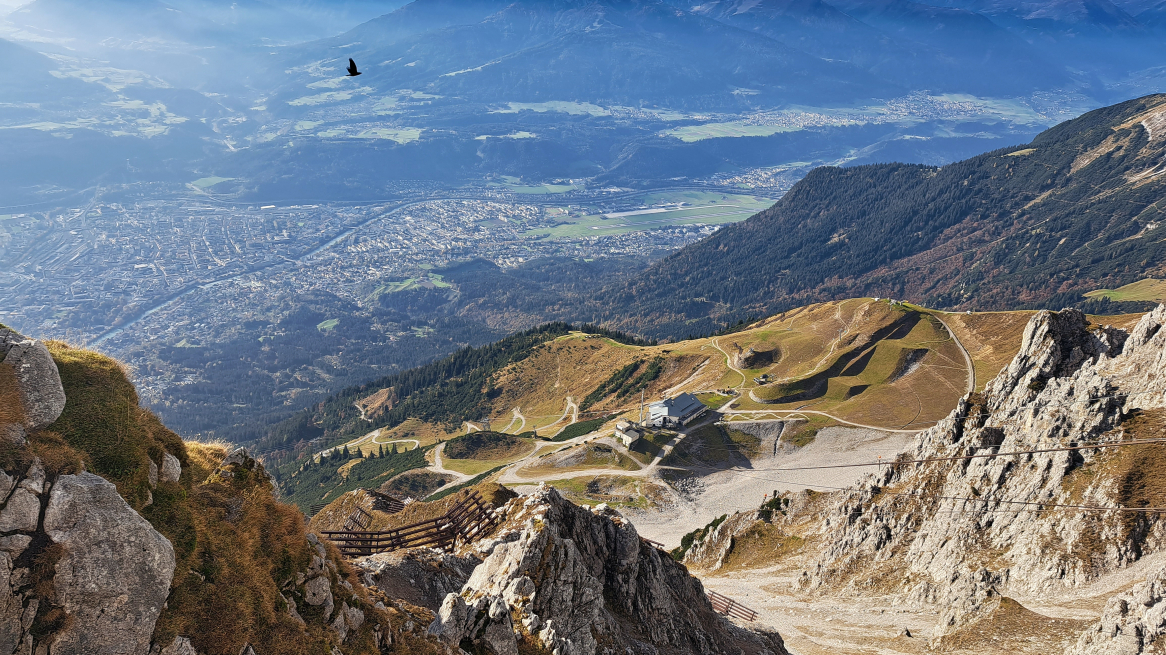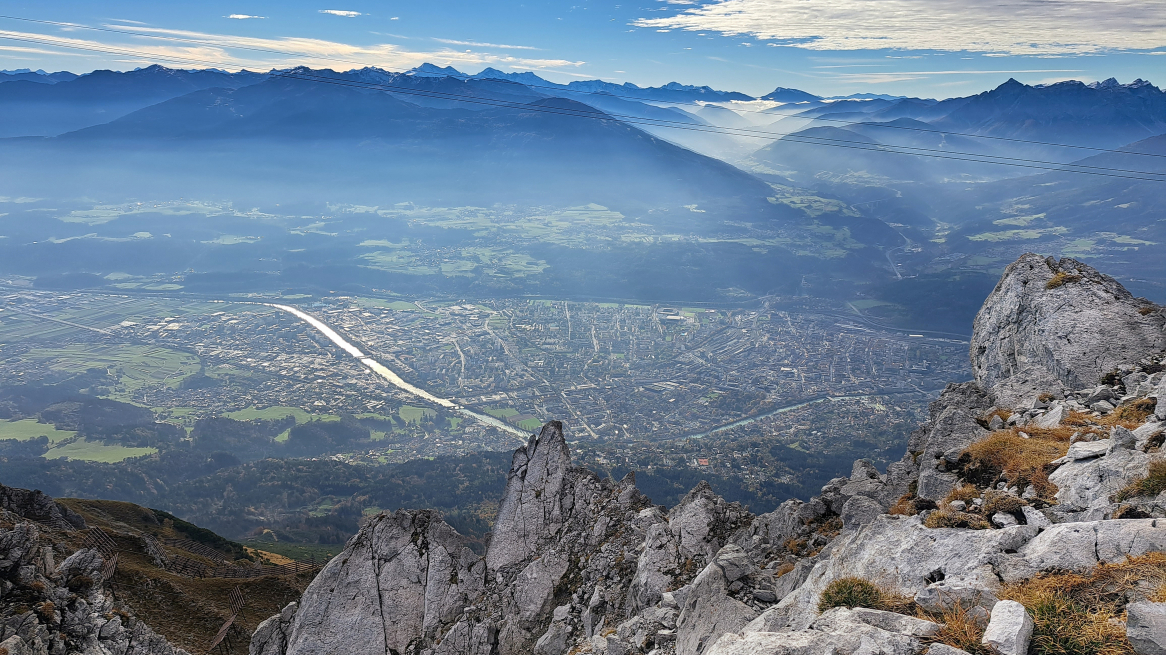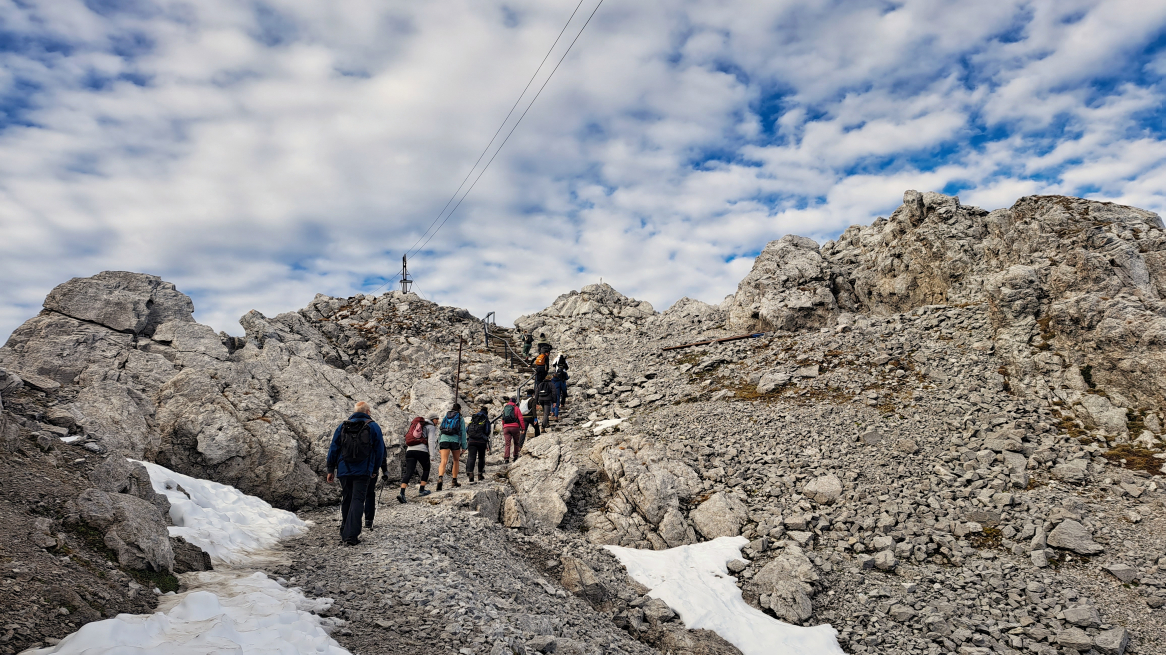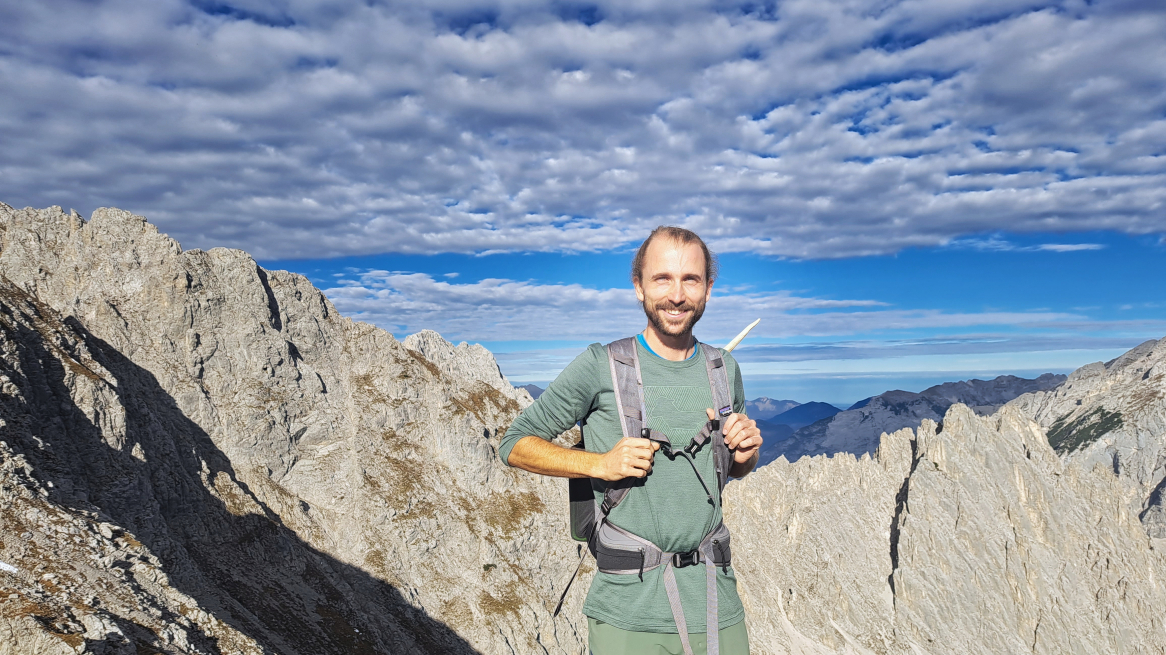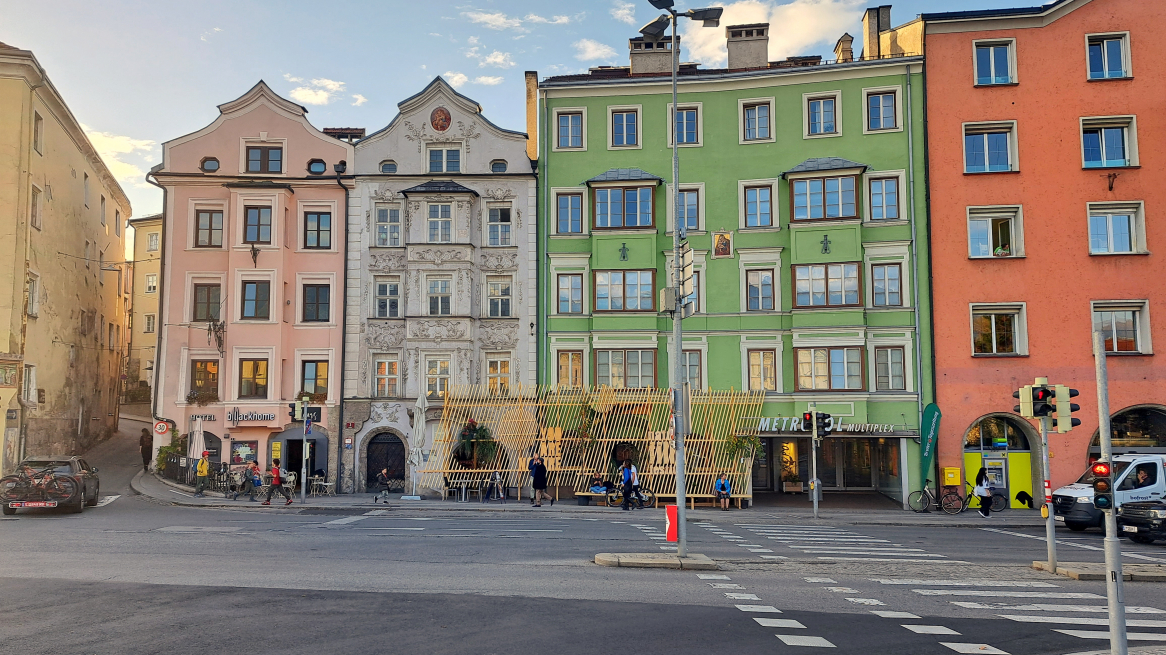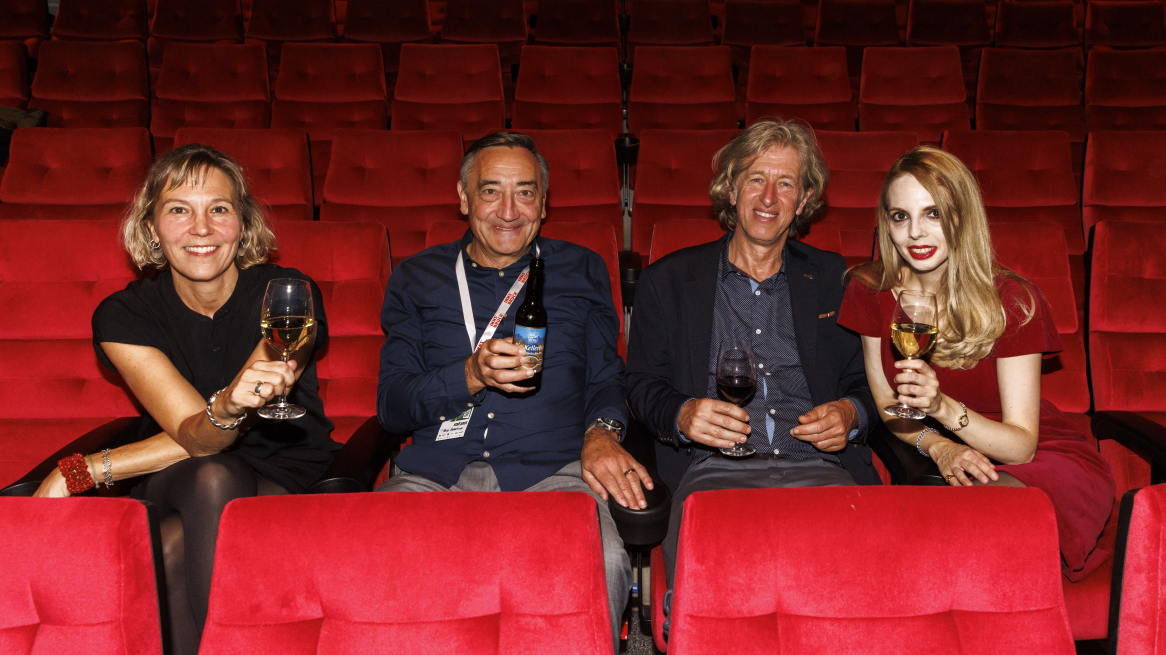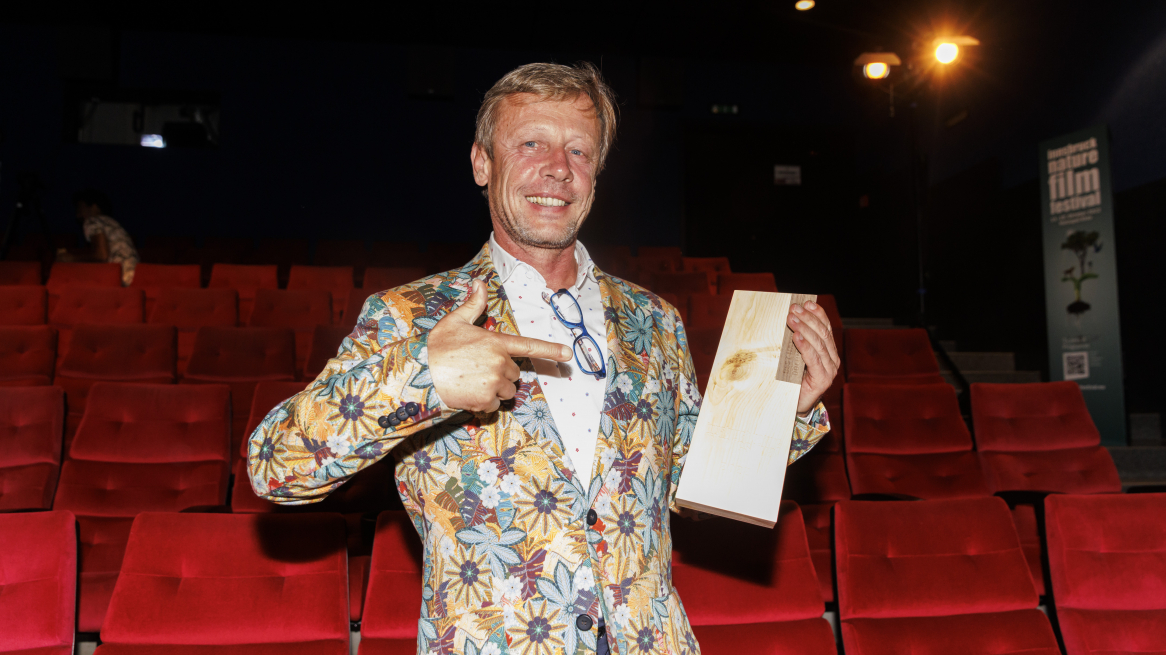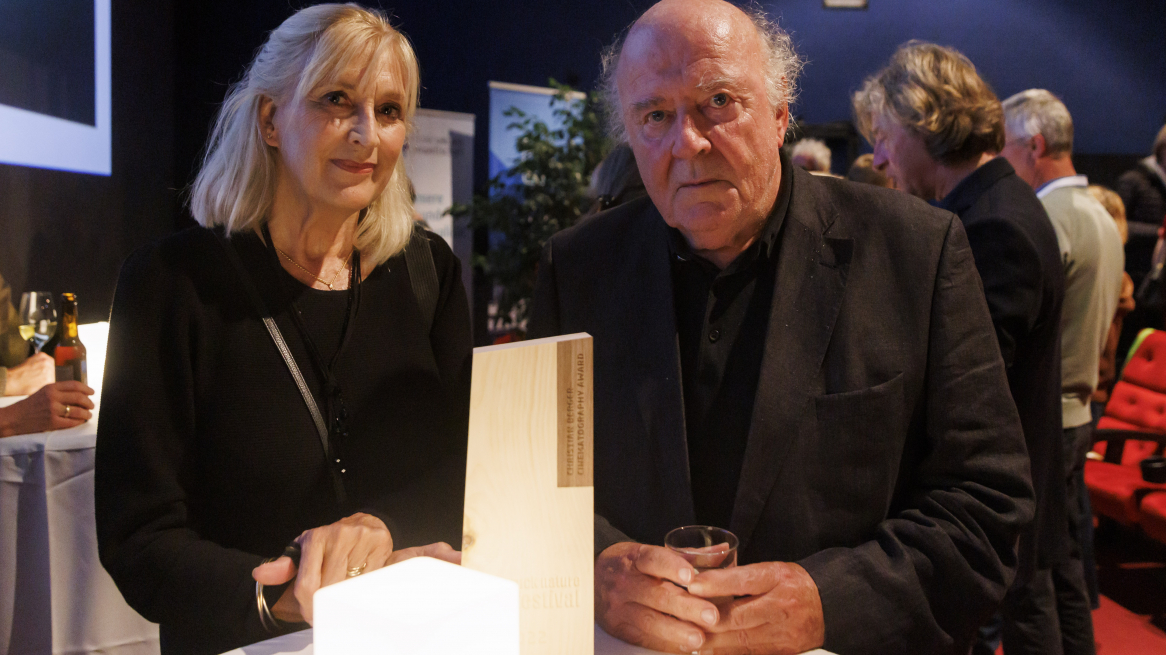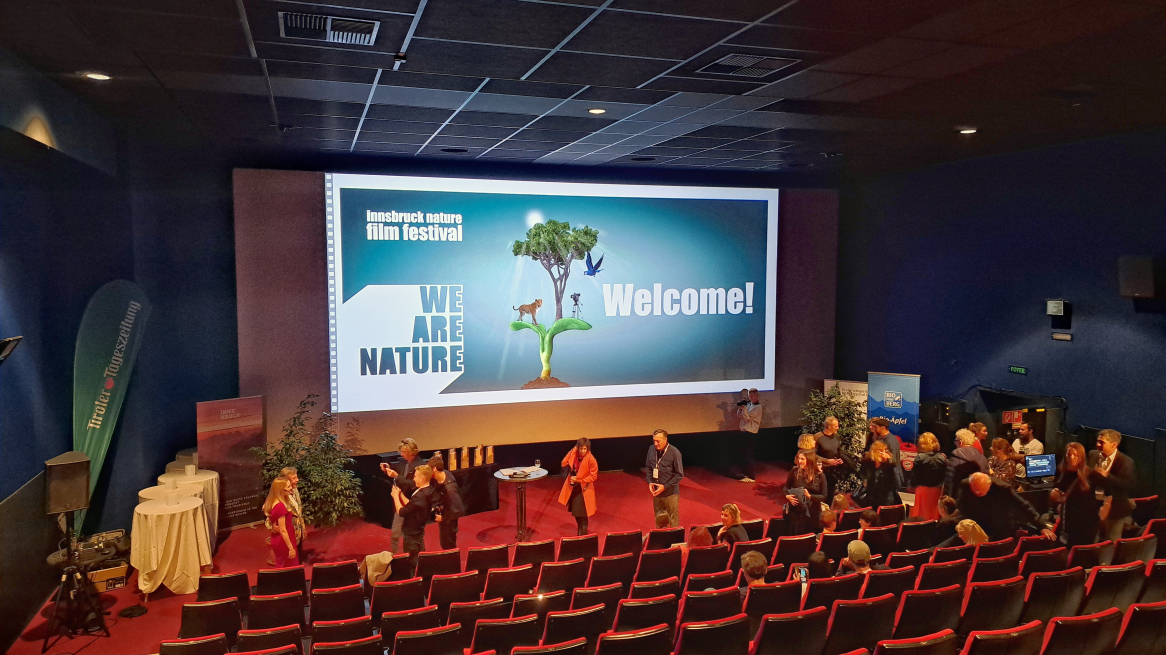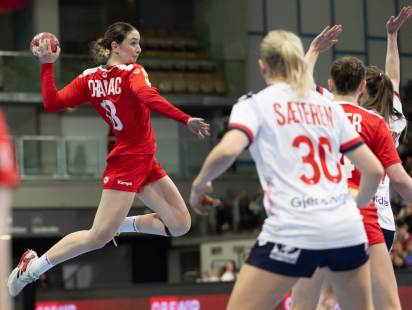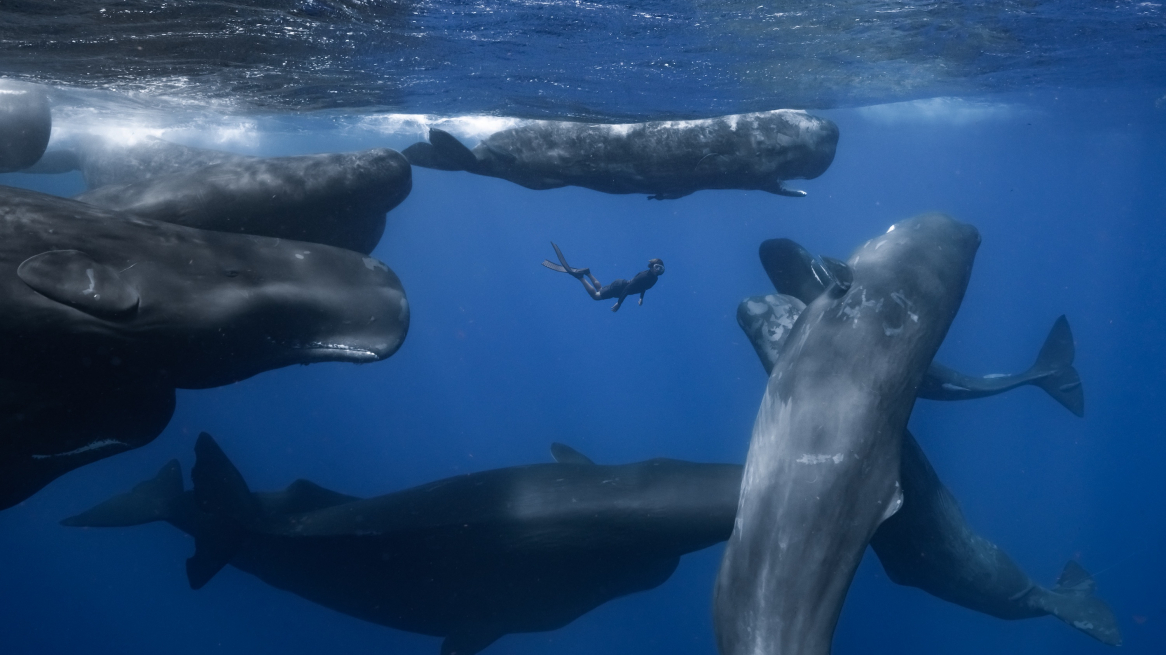
The Innsbruck Nature Film Festival took place this year between October 15 and 18 and our provincial capital could not have presented itself better. The colorful trees shone with the Nordkette and the blue sky around the bet. It was almost kitschy. Almost as if Innsbruck wanted to say, "You want nature, here you have nature!" The filmmakers, film lovers and jury members who had traveled from all over the world were highly enthusiastic and our Alpine metropolis once again proved to be the perfect venue.
In a nutshell
For all those who have not yet heard of the INFF here is a short overview: The Innsbruck Nature Film Festival (INFF for short) took place for the 21st time this year and is thus a fixed component of the Innsbruck festival landscape. It all started in the early 2000s with the Innsbruck Nature Film Days, initiated by Johannes Kostenzer, the regional environmental attorney. This year the focus was again on the films. However, the INFF also had a lot to offer off the screen. A great supporting program consisting of workshops, exciting lectures, the exhibition "100 years Genbank Tirol" and much more let guests and locals experience nature up close. Nature - as you probably guessed from the festival name - is the catchword under which the 50 films running in the prestigious international competition are united.
The exhibition "100 Years of Genbank Tirol" in the foyer of the Metropol Kino provided interesting insights into agriculture. © Elisabeth de Koekkoek
Above the roofs of Innsbruck
For me, the Innsbruck Nature Film Festival was one big pleasure. One highlight followed the next. I had the opportunity to meet many great new people, even an Oscar nominated filmmaker. Unfortunately, I could not attend the opening ceremony in person. So for me the festival started on Sunday with the nature tour "High above Innsbruck in the realm of ibex, ptarmigan and co.". I don't want to bore you and try to keep my ravings about the Nordkette within limits. Only this much is said: If you are in Innsbruck, you have to go to the Seegrube. If you don't believe me, check out my colleague Danijel. He is a gifted photographer and in this post you will find wonderful photos that perfectly capture the beauty of the Nordkette.
Proper footwear required
Oh yes, and another little tip: Don't forget that you are in high alpine terrain. Even if you can easily take the train up to the Hafelekar, good shoes are recommended. I only mention this because I think back to our hiking group when writing this post and many would have done well to follow this tip. But anyway, thanks to our hiking and nature guide Manuel Stabentheiner, the excursion was not only fun, but also extremely educational. I was able to learn so many new things. Did you know, for example, that the Alpine salamander is one of the few salamander species that give birth alive, or that marmots are extremely clean animals and have their own toilet facilities in their burrow?
Thanks to our hiking and nature guide Manuel Stabentheiner, we all made it down to the valley safely. © Elisabeth de Koekkoek
After the great nature tour - which, by the way, was free for all participants, a big thank you to the Nordkettenbahnen and the INFF - I went straight on to the Metropol cinema. From the mountain directly in front of the screen, that's exactly what the INFF is all about: Experiencing and understanding nature, whether in real life or on film. At the Kids Animal Session - which I attended together with my family - we were allowed to accompany the female marten Freya and went on the trail of the free-living parrots in Cologne. The Kids Session was rounded off by an exciting Q&A with the protagonist of the film "Freche Viecher: Sittiche. Invasion of the Weird Birds".
From the mountain to the cinema - the venue for the INFF was the Metropol Kino. © Elisabeth de Koekkoek
The devil and the coal
I'm a little sad that I didn't get to watch all of the films. Each one that I was able to see was good in its own unique way. Whether funny, exciting or just shocking, they all touched me and/or made me think. I don't want to withhold two of my personal highlights from you. Both films deal with the topic of the coal industry, both show its terrible effects on the local population.
The short film "300 meters - Garzweiler open pit mine II" gives an insight into the life of Waltraud Kieferndorf, who lives with her family in North Rhine-Westphalia on the edge of the Garzweiler II open pit mine, and who is likely to be evicted from her home as her entire village - for the coal industry - is to be flattened. The second film that got me incredibly involved is "Devil Put the Coal in the Ground". It is a depressing testimony about the coal industry and its decline in West Virginia.
A tough decision
I tell you, I'm glad I didn't have to sit on the jury. Because I definitely wouldn't have been able to decide. Especially when I had the unique opportunity to meet some of the filmmakers in person at the Directors Lunch at Gasthof Weisses Rössl on Monday and to get into conversation with them, I realized what incredible love, passion and enthusiasm is behind their work. I would never have been able to evaluate their works. Thank goodness I didn't have to, because there are people who know how to do that, and they did a really good job.
Film professionals among themselves: Film Curator Katja Trippel, Festival Manager Thilo Bohatsch, Festival Director Johannes Kostenzer, Ceremony Host Chiara Spagnoli Gabardi © APA Photoservice/Hetfleisch
Nature spectacle and ecothriller
The main prizes, each endowed with € 3,000.00, were won by the nature film "Patrick and the Whale" and the environmental documentary "Wood - The stolen forest" won the main prizes. Both films are Austrian productions whose protagonists come from all over the world and thus served the audience in Innsbruck's Metropol Kino beautiful emotional images from the depths of the ocean and gripping scenes in the eco-thriller.
The producer of Patrick & The Whale: Wolfgang Köhler.
The directors of Wood the Stolen Forest Ebba Sinzinger, Michaela Kirst. © APA Photoservice/Hetfleisch
Greetings from Hollywood
As mentioned at the beginning, we were even allowed to breathe a little Hollywood air during the INFF. Christian Berger, Oscar-nominated filmmaker who attended the festival for four days with his wife, awarded the special prize for best cinematography to the French duo Marie Amiguet and Vincent Munier for their film "Panthère des Neiges". "You see the light, the landscapes, the animals and the people. You are also authors with your camera and your direction. I am honored to give you this award for your beautiful 'Snow Leopard,'" said Christian Berger.
Even more winners
The prize for the best short film went, as mentioned, to "300 Meter - Garzweiler Tagebau II". The Best Animated Short Film Award went to "L`Air de Rien - Slipping Away". The Wild Women Award went to Salomé Jashi with her film "Taming the Garden", the special prize for the best film on the subject of soil went to the film "Pleistocene Park", the Young Talents Short Film Award of the Tiroler Tageszeitung went to "Little Things" and the prize for the best film on the subject of biodiversity in agriculture went to Camilla Becker and James Becket with "The Seeds of Vandana Shiva".
That's a Wrap
The award ceremony was very successful, not least because of the charming presenter Chiara Spagnoli Gabardi. But my personal favorite was the Youtuber, filmmaker, TikToker and poet Tomfoolery. I can't leave him unmentioned in this post, because on the one hand he completely changed my mind when it comes to TikToker and social media creators in general, and on the other hand he is a gifted poet who absolutely enriched the award ceremony with his poem about Innsbruck. I can only warmly recommend you to follow him on social media - it's worth it.
Thank you and until next time
I would like to conclude with the words of Chiara Spagnoli Gabardi, at least in spirit. Because she reminded the audience once again how important it is to take care of our environment. Even if we can't do much, every little gesture counts: for example, when we take the train instead of the car, buy second-hand or choose organic products. All of this may be just a drop in the bucket, but many drops make a river! On that note, thank you for allowing me to be a part of and write about this wonderful festival. It was an honor and I look forward to next year!
Cover photo: © Terra Mater Studios GmbH - Romain Barats
Rate this article
Show me the location on the map
Mother, TV series addict and nature lover with a passion for good food and the mountains!
Similar articles
The Axamer Lizum hosted the International German Ski Championships for the first time at the end of…
All waltz or what was that? My first dance steps were almost exactly 20 years ago. But…
Austria is about to experience a premiere as a sporting nation: together with Switzerland and Hungary, it…
The carnival in Axams is one of the six major traditions of the "fifth season" in Tyrol.Every…

